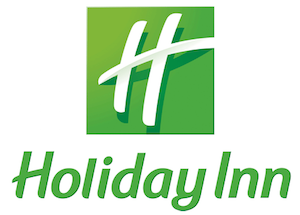
Online accom booking platforms under Government microscope
Price parity clauses: Calls for industry feedback seen as essential in post-COVID recovery phase
Accommodation providers and tourism operators are reminded that they have until January 06, 2023, if they wish to provide feedback to Government on the use of price parity clauses and similar restrictions by online accommodation booking platforms in Australia.
The feedback is seen as essential for the Government to understand the extent to which price parity clauses or similar restrictions are currently in use and also assist in understanding the impact that any such clauses or restrictions are having on tourism and accommodation providers as the sector recovers from the impact of the COVID-19 pandemic.
Our latest AccomNews print issue is available now! Read it HERE
In its ‘Online bookings – restrictions on tourism and accommodation providers setting prices Consultation paper’ the Government refers to price parity clauses that prevent providers from offering lower prices on their own website and may restrict price competition between different distribution channels.
Tourism and accommodation providers may be limited in their ability to tailor their pricing to best meet their commercial interests.
Where customers book rooms directly with accommodation providers rather than through an OTA, the accommodation provider avoids paying an OTA a commission, which can be a significant portion of the cost of a room.
If an online booking platform used a wide price parity clause, it could prevent providers from setting lower retail prices on rival platforms that offer more competitive commission rates.
This could keep commissions high and lead to consumers paying higher prices than they otherwise would. Such clauses could also prevent or discourage entry from new low-cost platforms and reduce innovation.
Online booking platforms, on the other hand, may be concerned if consumers use their site to find available options, but then book that service directly, at a cheaper price, on the tourism or accommodation providers’ own website. If consumers routinely do this, the commercial attractiveness for online booking platforms to re-invest in their online search platform may be reduced if they are unable to recover the costs of that investment through booking sales on their platform.
Price parity clauses may therefore indirectly create benefits for consumers, by helping to reduce their search effort and encouraging online booking platforms to invest in improvements to the quality of their platform.
Another concern that has been raised by accommodation providers is that they may receive a lower ranking in the search results for online booking platforms if they offer a lower price through an alternative outlet.
Consultation is intended to assist the Government to understand the extent to which price parity clauses or similar practices are being used by online booking platforms, and any impact this is having on the ability of Australian tourism and accommodation providers to set their own prices when guests contact them to book; and also identify if any action, including legislative change, is required to address this.
While submissions may be lodged electronically or by post, electronic lodgement is preferred via [email protected] with final submissions to be received by January 06, 2023.

AccomNews is not affiliated with any government agency, body or political party. We are an independently owned, family-operated magazine.








We may not like Booking.com and their ilk, but they have small ‘mum and dad’ motels over a barrel. Recently a colleague in town told me she had tried to stop using the OTA’s, but as a result, their motel ‘fell off’ the internet, so they were forced to rejoin. The OTA’s appear at the head of the page on search engines, and even if you make a great effort to be ‘seen’ by regular postings and paying to join regional websites, customers say they give up searching and just use the OTA because it is ‘easier’. I restrict the number of rooms available to OTAs and have banned the ones that abuse pricing (like advertising bed breakfast and evening meal within the normal room rate) but they still are, unfortunately, a necessary evil.